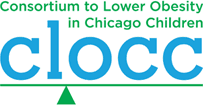Successes in Adolescent Health:
Tools and Techniques to Support Pregnant and Parenting Young People in Breastfeeding
“Successes in Adolescent Health: Tools and T echniques to Support Pregnant and Parenting Young People in Breastfeeding” was an education and training event held in August, 2016, that engaged health and social service professionals who serve pregnant and parenting young people. This webpage features presentation recordings and slides and an array of other materials based on information presented and discussions held throughout the event.
echniques to Support Pregnant and Parenting Young People in Breastfeeding” was an education and training event held in August, 2016, that engaged health and social service professionals who serve pregnant and parenting young people. This webpage features presentation recordings and slides and an array of other materials based on information presented and discussions held throughout the event.
The goal of this education and training event was to:
- Educate health and social service providers about barriers pregnant and parenting young people face in initiating and sustaining breastfeeding
- Share the less obvious benefits of breastfeeding
- Train on effective counseling and interventions
- Encourage the use of supportive policies and referral processes in health care settings, schools, and communities that promote breastfeeding
The event featured 24 presenters representing an array of perspectives, including hospitals and clinics, research and education, home health, organizations involved in the school system, community organizations, and youth leaders.
Topics addressed included:
- Successful practices to support young people and promote successful breastfeeding interventions in the prenatal, labor and delivery/intrapartum, and postpartum periods
- Hands-on training on baby-holding techniques
- Safe sleep and infant mortality
- Engaging partners and families
- Pacifiers and postpartum depression
View the Event Agenda Packet for presenter biographies, more on topics covered, and information about event hosts.
Host Organizations
- Ann & Robert H. Lurie Children’s Hospital of Chicago
- Consortium to Lower Obesity in Chicago Children (CLOCC)
- Strengthening Chicago’s Youth (SCY)
- EverThrive Illinois
- HealthConnect One
- Heartland Human Care Services, Inc. | Heartland Alliance
- Illinois Caucus for Adolescent Health
- Illinois Chapter of the American Academy of Pediatrics
- U.S. Department of Health and Human Services, Health Resources and Services Administration, Office of Regional Operations – Region V
- U.S. Department of Health and Human Services, Office of the Assistant Secretary for Health – Region V Adolescent Health Network
The following materials have been developed
as a result of this training event
Guide: Supporting Pregnant and Parenting Young People in Breastfeeding
Supporting Pregnant and Parenting Young People in Breastfeeding: This guide explores a multitude of factors that influence adolescent mothers’ decisions of whether or not to breastfeed, common barriers faced, and successful approaches to overcoming those barriers.
Key Messages for Health Care Professionals
Supplemental Conversation Guide: Key Messages for Health Care Professionals to use in Promoting and Supporting Pregnant and Parenting Young People in Breastfeeding: This document contains key messages for health care professionals – developed from recommendations by expert health care professionals – to use in promoting and supporting pregnant and parenting young people in breastfeeding; it includes sample language for the prenatal, intrapartum, and postpartum periods.
Presentation Recordings
- Welcome and Opening Remarks: Co-host, Lesley J. Craig, U.S. Department of Health and Human Services, Office of the Assistant Secretary for Health – Region V, and Dr. Matthew Davis, Division Head of Academic General Pediatrics and Director of the Smith Child Health Research Program at the Ann & Robert H. Lurie Children’s Hospital of Chicago provide welcoming remarks to set the stage for the day.
- Breastfeeding Makes All the Difference: Breastfeeding’s Role in Overcoming Adversity:
Plenary presenter, Kathleen Kendall-Tackett, PhD, IBCLC, FAPA, describes issues of adversity, such as adverse childhood experiences, race and discrimination, stress and anxiety, and how breastfeeding can play a role in protecting infants and lessening the impact on the mother as well; with introductions from co-host, Michelle Hoersch, HHS, OASH – Region V.
Note: Visit Dr. Kendall-Tackett’s website for more specifics about this presentation and other breastfeeding research. - Understanding the Context: Experiences of Young People When Initiating and Sustaining Breastfeeding: This panel presentation features subject matter experts representing different entities involved in supporting pregnant and parenting young people, such as health care, school, research and academia, and community, as well as a young person with lived experience. See event agenda for presenter biographies.
- Effective Counseling, Referral, and Systems to Support Breastfeeding in Young People: a Look at Successful Practices in Healthcare Settings: This panel addresses practices to promote successful breastfeeding interventions with adolescent patients in health care settings. Expert presenters describe counseling techniques and other interventions for the prenatal, labor and delivery/intrapartum, and postpartum periods and discuss ways to provide effective referrals to support young parents in breastfeeding. Presenters also discuss how health care systems can support the provision of breastfeeding preventive services through different protocols and policies. See event agenda for presenter biographies.
Event Agenda Packet
View the Event Agenda Packet to learn more about this event, including topics addressed, presenter biographies, and information about the host organizations. The U.S. Preventive Services Task Force breastfeeding counseling recommendation, as well as coverage requirements for breastfeeding support and counseling under the Patient Protection and Affordable Care Act, are also included.
Powerpoint Presentations and Presenter Hand-outs
- Welcome Presentation: Slides include a listing of local (Chicago) and national resources regarding promotion and support of breastfeeding.
- Plenary Presentation – Breastfeeding Makes All the Difference: Breastfeeding’s Role in Overcoming Adversity: Kathleen Kendall-Tackett, PhD, IBCLC, FAPA describes issues of adversity, such as adverse childhood experiences, race and discrimination, stress and anxiety, and how breastfeeding can play a role in protecting infants and lessening the impact on the mother as well; with introductions from co-host, Michelle Hoersch, HHS, OASH – Region V.
-
Tools and Techniques to Best Provide ACA-Covered Preventive Services: Breastfeeding: Ann E.B. Borders, MD, MSc, MPH, obstetrician-gynecologist in the Division of Maternal-Fetal Medicine at NorthShore University HealthSystem shares recommended practices for health care providers and systems to support patients in breastfeeding.
-
Adolescent Breastfeeding: Epidemiology & Role of Health Care Providers: Heather Sipsma, PhD, assistant professor at Benedictine University presented on research regarding adolescents and breastfeeding – rates of initiation and duration, factors that influence intention to breastfeed, and effective and promising health care interventions to support breastfeeding in young mothers.
-
Supporting Teens and Their Babies with Breastfeeding: Hands On: Aimee Crow, MD, pediatrician and adolescent medicine specialist at NorthShore University HealthSystem and Erie Family Health describes tips for working with pregnant and parenting young people through pregnancy, labor and delivery at the hospital, and in postpartum visits, including sample language to use to support them in breastfeeding.
-
Westside Healthy Start Breastfeeding Support Model: Sandra Morales, CLC, Breastfeeding Support Counselor for the Westside Healthy Start program at Access Community Health Network discusses important the role of a breastfeeding counselor in affirming, educating, and supporting patients in breastfeeding.
Question and Answer with Presenters
This document contains a list of audience follow-up questions along with summaries of presenter responses. Examples of topics addressed include strategies to involve a pregnant or parenting adolescents’ mother in breastfeeding discussions, helping young moms feel empowered to breastfeed despite unsupportive family members, and enabling adolescents to make informed decisions about breastfeeding according to what they believe is best for them.
Peer-reviewed and Local References
This reference list was developed to supplement the training event. It includes over 40 peer-reviewed articles focused on breastfeeding and adolescents, as well as resources specific to Illinois and Chicago.
Host Organization Resources
This document includes a list of relevant resources from each of the training event’s host organizations. (See above for the list of host organizations.)

